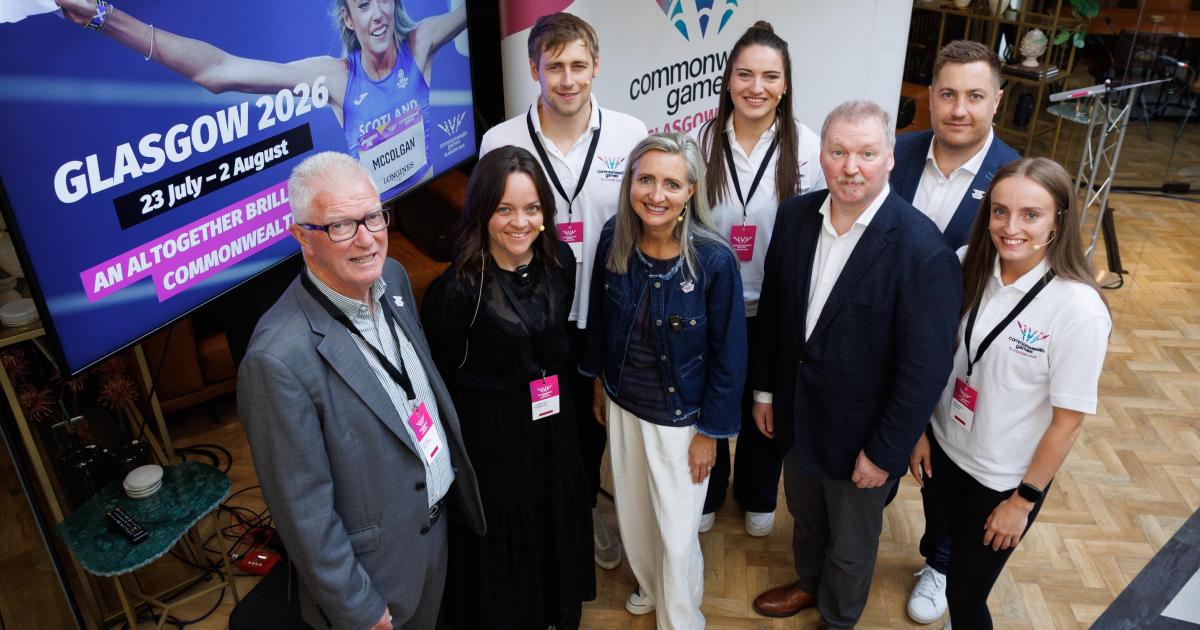While the city is stepping in to host the re-imagined 2026 Commonwealth Games – the 23rd edition – after the original host, Victoria in Australia, withdrew due to rising costs, and the Games are returning to Glasgow 12 years after the hugely successful 2014 Commonwealth Games, businesses were warned not to make comparisons with that sunny three-week event.
Louisa Mahon, chief marketing officer for Glasgow 2026 said that “new records will be built on an amazing legacy” of events in the city, pointing to Glasgow’s reputation for hosting “amazing” events going back to the high-profile Garden Festival in 1988.
“There is no other city in the world that could have risen to the challenge,” Ms Mahon told the business engagement event, hosted by The Herald in its offices in Glasgow, describing the 2014 Games as the “rocket fuel” for putting Glasgow and Scotland on a global stage.
“Hundreds of thousands of people will come to Glasgow and Scotland next year,” she said. “They will come for the Games and stay for Glasgow. But don’t compare what came before.
“Our commitment is that we will work with you and be responsive to your needs,” Ms Mahon added. “We want our city to shine; we want our tourism sector to shine. And every bit of this city will be picture perfect for an ‘Altogether Brilliant’ Games.”
Read More:
The Games, running from July 23 to August 2, will bring together 3,000 athletes from 74 nations and territories to compete across 10 sports and six Para sports, with more than 200 medals to be won in 30 medal sessions, across 50 sport sessions.
Events will take place in four of Scotland’s most landmark venues: the Sir Chris Hoy Velodrome and Arena, Scotstoun Stadium, Tollcross International Swimming Pool, and the Scottish Exhibition Campus (SEC).
This morning’s event heard that businesses stand to benefit from increased visibility, footfall, and commercial opportunities – both during the Games and in the legacy they leave behind as the city’s venues, streets, and communities find themselves at the centre of next summer’s action.
George Black, chair of the Glasgow 2026 Organising Company, a former chief executive of Glasgow City Council who led the city’s preparations for the 2014 Commonwealth Games, shared his enthusiasm for what he said would be a “unique Clyde-built experience” in 2026. Glasgow 2026, he noted, will deliver support over £150 million of economic value region.
Meanwhile, Phil Batty, chief executive of Glasgow 2026, reminded the audience that the King’s Baton Relay is under way, with all batons from the 74 competing nations reuniting at the opening ceremony in Glasgow next July.
“The opportunity to collaborate is greater than ever before,” he stated. “The welcome will be on point. We are working more closely with the private sector – we want to work with you because tourism is vital to the Scottish economy.
“Glasgow 2026 is setting a new standard: flexible, sustainable, and inclusive. And Scotland will be on the world stage for 11 unforgettable days – at no cost to the public purse.”
In a panel session titled “City Voices”, exploring how Glasgow can leverage the Games to leave a lasting legacy for the city and its communities and chaired by Catherine Salmond, editor of The Herald, the deputy chief executive of Glasgow Chamber of Commerce, Richard Muir, said: “We want Glasgow and Scottish companies to win procurement contracts for the Games.
“There’s a good buzz and great energy in the city just now and things are changing for the better,” he noted. “We are huge event delivery city – and in 2023, Glasgow was the first city to be named the European Capital of Sport for the second time. And we see the Games as being part of the catalyst for growth for the city and change.”
Chandra Pollock, project manager at Let’s Go Glasgow Business Improvement District (BID), commented: “There is a real opportunity to get pride back in the city – the Games provide a springboard to get that pride back and for you to shout about what your business has to offer that is different to any city in the world. It’s a struggle for some just now but we can be positive [about the Games]. Communication is key.”
Editor of the Glasgow Times, Stacey Mullen, expanded on the importance of communication. “We like stories that are quirky and celebrate our culture,” she said, recalling the dancing Tunnock’s Teacakes at the opening ceremony of the 2014 Games and sharing her fondness of Clyde the Mascot – while welcoming the 2026 Mascot, Finnie.
“I don’t think a lot of people realise how great Glasgow is – we don’t shout about it enough. We have a great music scene, shopping, some of the best restaurants in the world. We shouldn’t be modest. The Glasgow Times wants to hear your stories – The Herald wants to hear your stories.”
This morning’s event, introduced and hosted by broadcaster Rhona McLeod, a former Scottish international athlete, also heard “What the games mean to me” from three athletes: Stephen Clegg, Team Scotland Para swimmer and Birmingham 2022 silver medallist (50m Freestyle S13); Niamh McCall, Team Scotland netballer player; and Shannon Archer, former Team Scotland artistic gymnast and member of the Glasgow 2026 Athlete Advisory Group.
Shannon made history at Birmingham 2022 when she won a bronze medallist (vault), becoming the first-ever Scottish women’s artistic gymnast to win a medal at the Commonwealth Games.
Closing the event, Stuart Patrick, chief executive of Glasgow Chamber of Commerce, conceded that Glasgow had “taken a bit of a buffeting” in recent years but said these “leaner, fitter Games” will bring a “tremendous boost” to the economy, adding: “The momentum for change is building and there is investment across the public realm.”
